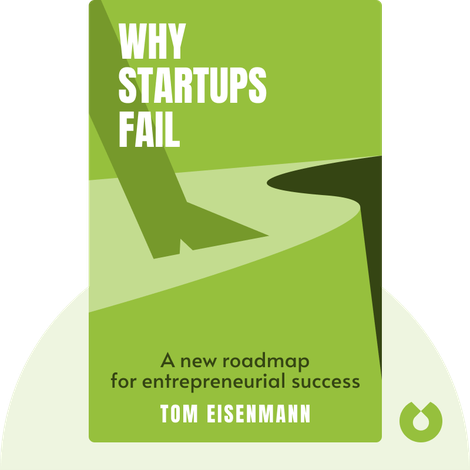Introduction
A. The Importance of Failure within the Startup Ecosystem
Startups are known for their revolutionary ideas and disruptive capacity. However, alongside the potential for success, there’s also a massive hazard of failure. In reality, failure is an inherent part of the startup ecosystem. While failure might also seem discouraging, it performs a crucial role in shaping marketers and their ventures.
Failure serves as a precious instructor, presenting useful instructions that could contribute to destiny fulfillment. It provides marketers with the opportunity to analyze, grow, and adapt their techniques. By information on the significance of failure, marketers can navigate the unpredictable landscape of startups with resilience and determination.
B. Overview: Embracing Failure and Learning from It
In this blog, we will explore the concept of embracing failure and the classes we can research from failed startups. Rather than shying far from failure, we can delve into the mindset shift necessary to view it as a stepping stone to fulfillment. By reading the stories of failed startups, we can pick out commonplace mistakes and pitfalls to keep away from, in the long run growing the chances of fulfillment in our very own entrepreneurial endeavors.
The weblog will offer insights into precise instructions found from failed startups, masking elements which include poor marketplace studies, crew dynamics, advertising strategies, and monetary control. Additionally, we will look at case research of failed startups, highlighting their errors and the valuable instructions we can extract from their stories. Finally, we can discover techniques for bouncing back from failure and embracing a boom-orientated mindset.
By the give up this blog, readers will advantage a deeper knowledge of the significance of failure in the startup global and how it can be transformed into a catalyst for non-public and expert increase. So, allow’s dive into the arena of failed startups and uncover the precious instructions they must offer.
Why Failure is Inevitable in Startups
A. Discussion on the Risky Nature of Startups and the Likelihood of Failure
Startups are inherently unstable ventures. They frequently function in uncharted territories, trying to disrupt present industries or create new markets. The very nature of innovation involves uncertainty, and with uncertainty comes the opportunity for failure.
Startups face several challenges, inclusive of fierce opposition, restrained sources, marketplace volatility, and evolving consumer choices. These factors contribute to the high failure rate among startups. Statistics show that a large percentage of startups fail within their first few years of operation.
However, it’s miles critical to apprehend that failure isn’t always necessarily a mirrored image of incompetence or loss of attempt on the part of the marketers. Instead, it’s far an anticipated part of the entrepreneurial journey. Embracing this reality is step one in the direction of learning from failure and ultimately achieving success.
B. Examples of Well-Known Startups That Failed and the Reasons Behind Their Failure
To illustrate the inevitability of failure in startups, let’s examine a few well-known examples of startups that skilled significant setbacks or outright failure. These tales offer treasured insights into the not unusual demanding situations that can lead to failure:
- Company X: Company X, a promising tech startup, did not stable a sustainable customer base no matter the initial traction. The primary reason for their failure was a lack of thorough market studies and a failure to perceive a robust product-market suit. They no longer understood the wishes and choices of their target market, resulting in a mismatch between their product-providing and purchaser expectancies.
- Company Y: Company Y raised vast funding but struggled to construct an effective group and keep a cohesive enterprise subculture. Internal conflicts, a loss of shared vision, and useless leadership ultimately brought about their downfall. This example highlights the significance of assembling a capable and aligned group within the early levels of a startup.
- Company Z: Company Z had a unique and revolutionary product, however, their marketing and client acquisition techniques fell quickly. Despite an extremely good product, they failed to successfully reach their goal market and speak the cost proposition. As an result, they had been not able to generate enough purchaser hobbies and stable sustainable revenue streams.
These examples reveal the multifaceted nature of startup screw-ups. By studying the motives behind those failures, we can benefit from treasured insights into the pitfalls to avoid in our very own entrepreneurial adventure.
Remember, failure is not the give up—it’s far a possibility to research and improve. In the subsequent sections, we will delve deeper into the particular classes we can extract from failed startups and the way we can practice them in our personal endeavors.
Embracing Failure as a Learning Opportunity
A. The Mindset Shift Required to See Failure as a Stepping Stone to Success
Embracing failure starts with an attitude shift. Instead of viewing failure as a final result, we must see it as a stepping stone in the direction of fulfillment. Failure gives precious classes and insights that could manual us toward higher decisions and strategies inside destiny.
This mindset shift entails reframing failure as a brief setback rather than a reflection of private worth or ability. By expertise that failure is a natural part of the entrepreneurial journey, we can approach it with interest, resilience, and a willingness to research.
B. Benefits of Embracing Failure: Personal Growth and Resilience Development
Embracing failure comes with a mess of blessings that expand past the immediate setback. One of the maximum sizeable blessings is a non-public boom. Failure challenges us to mirror our decisions, examine our errors, and broaden new abilities and perspectives. It pushes us out of our comfort zones and encourages continuous improvement.
Failure additionally cultivates resilience, that’s an important trait for entrepreneurs. The ability to bounce back from failure, adapt to converting situations, and persevere in the face of adversity is what units hit marketers apart. Embracing failure as a getting-to-know possibility strengthens our resilience muscle groups, allowing us to navigate future demanding situations with more confidence and resolution.
C. Quotes or Anecdotes from Successful Entrepreneurs Who Learned From Their Failures
Numerous hit marketers have experienced failure firsthand and have used the reviews to gas their subsequent achievements. Their stories function ideas and remind us of the transformative power of embracing failure. Here are some rates or anecdotes from success marketers:
- “I even have now not failed. I’ve simply determined 10,000 approaches that may not paintings.” – Thomas Edison, inventor of the light bulb. Edison’s relentless pursuit of innovation demonstrates the resilience and perseverance required to show failure into achievement.
- Sarah Blakely, the founding father of Spanx, once stated, “Failure isn’t always the final result. Failure is not trying.” Blakely’s angle highlights the importance of taking risks and viewing failure as a vital part of the entrepreneurial journey.
- Jeff Bezos, the founder of Amazon, famously said, “I knew that if I failed, I would not regret that. But I knew the one factor I may remorse isn’t always trying.” Bezos’s attitude displays the braveness and increase-oriented mindset required to embrace failure and push forward.
These charges and anecdotes remind us that failure is not the give up but a stepping stone toward success. They reinforce the notion that gaining knowledge from failure is a precious talent that can lead to extra achievements in destiny.
In the approaching sections, we can dive into particular instructions learned from failed startups, drawing proposals from these mindset shifts and the benefits of embracing failure.
Lessons Learned from Failed Startups
A. Identifying Common Mistakes or Pitfalls That Lead to Startup Failure
Startups fail for diverse motives, however, there are no unusual errors and pitfalls that entrepreneurs ought to be privy to. By understanding those patterns, we can avoid comparable missteps and increase our possibilities of achievement.
Some common errors consist of inadequate marketplace studies, vulnerable crew dynamics, ineffective advertising strategies, and financial mismanagement. By inspecting these regions closely, we can study treasured lessons as a way to assist us construct more potent and greater sustainable startups.
B. Examples of Specific Lessons Learned from Failed Startups
Poor Market Research and Lack of Product-Market Fit
- One of the key instructions discovered from failed startups is the importance of undertaking thorough marketplace research and ensuring a sturdy product-market healthy. Without a deep knowledge of the goal market’s wishes, alternatives, and pain points, startups can easily pass over the mark with their service or product providing. By making an investment time and effort into marketplace studies, startups can validate their ideas, perceive target audiences, and tailor their services to satisfy patron needs.
- Weak Team Dynamics and Lack of Expertise
- Another crucial lesson from failed startups is the importance of building a successful and aligned team. Weak group dynamics, conflicts, and a lack of information can impede progress and preclude success. It is important to assemble a crew with complementary abilities, shared values, and a commonplace vision. Nurturing a wonderful and collaborative group tradition is important for lengthy-time period fulfillment.
- Ineffective Marketing and Customer Acquisition Strategies
- Failed startups frequently battle with marketing and patron acquisition. It is vital to develop powerful advertising strategies that attain the target audience and efficaciously talk the price proposition. Understanding the target customers’ ache factors, choices, and media intake behavior can manual startups in growing centered advertising campaigns and patron acquisition techniques.
markdown Copy code four. **Mismanagement of Finances and Unsustainable Business Models** vb net can Copy code Financial mismanagement and unsustainable commercial enterprise models are large participants in startup failure. Startups need to carefully plan and manipulate their finances, making sure of proper allocation of assets and sensible financial projections. It is vital to evaluate the viability and scalability of the commercial enterprise model, considering factors together with revenue streams, fee structure, and marketplace dynamics.
By studying these particular examples and the classes they offer, aspiring entrepreneurs can keep away from common pitfalls and make informed selections that cause lengthy-term achievement.
In the next section, we can explore case research of failed startups, reading their journeys, and extracting further insights and training from their reports.
Case Studies Failed Startups and Their Lessons
A. Case Study 1: Analysis of a Failed Startup’s Journey, Highlighting Key Lessons
In this situation have a look at, we are able to examine the journey of a failed startup, inspecting the important thing factors that led to its downfall. By analyzing this example, we will extract treasured training and insights that could inform our entrepreneurial endeavors. We will discover elements together with market research, product-market in shape, team dynamics, advertising and marketing strategies, and monetary management, pinpointing the vital errors that contributed to the startup’s failure. This analysis will function as a cautionary tale and provide actionable takeaways for future marketers.
B. Case Study 2: Examining Another Failed Startup’s Mistakes and Takeaways
In the second case take a look at, we can delve into the mistakes and takeaways from some other failed startups. This exam will focus on a distinct set of demanding situations and pitfalls, showcasing the variety of things that can lead to startup failure. We will explore subjects that include group dynamics, product development, client acquisition, and aggressive panorama. By know-how the particular mistakes made through this startup, we can identify styles and traits which could assist us avoid comparable pitfalls in our ventures.
C. Case Study Three: Insights from a Failed Startup’s Founder on Their Post-Failure Success
In this example examination, we will have the possibility to advantage of insights from the founding father of a failed startup who efficiently bounced return from their failure. We will discover their journey, which includes the emotional challenges confronted after the startups fall apart and the steps taken to recover and gain the next success. By understanding their publish-failure studies, we can benefit treasured lessons in resilience, adaptability, and the electricity of getting to know from failure. This case takes a look at will encourage and offer the desire to entrepreneurs who’ve faced setbacks, displaying that failure does not define one’s entrepreneurial adventure but can be a stepping stone to destiny accomplishments.
Through those case research, we can benefit from a deeper know-how of the challenges confronted with the aid of failed startups, the unique errors they made, and the instructions we will examine from their reviews. By learning from the screw-ups of others, we can higher equip ourselves to navigate the complexities of the startup panorama and increase our possibilities of building success ventures.
In the next section, we can explore strategies for bouncing back from failure and turning it right into a catalyst for destiny success.
Strategies for Bouncing Back from Failure
A. Steps to Take After a Startup Failure to Regain Momentum
After experiencing a startup failure, it’s miles crucial to take particular steps to regain momentum and flow ahead. This section will offer sensible advice on a way to navigate the aftermath of failure. We will explore strategies including reflecting on the failure, assessing instructions learned, taking time for self-care and reflection, in search for aid from mentors and peers, and putting new desires and targets. These steps will help marketers regain their confidence, refocus their energy, and reengage with the entrepreneurial journey.
B. Advice on Assessing Failures, Learning from Them, and Applying Lessons to Future Endeavors
Assessing failures is a vital part of the mastering system. In this phase, we will talk about the importance of undertaking a thorough autopsy analysis of the failed startup. By comparing the reasons at the back of the failure, identifying patterns, and extracting treasured lessons, entrepreneurs can avoid repeating the equal mistakes in their future endeavors. We will offer steerage on how to conduct a comprehensive evaluation, ask the right questions, and extract actionable insights that may be applied to future ventures.
C. Encouragement to Persist and Keep Trying Despite Past Failures
Failure may be disheartening, however, it should now not deter marketers from pursuing their goals. In this section, we can offer encouragement and motivation to persist regardless of past screw-ups. We will emphasize the stories of hit marketers who confronted multiple failures before achieving sizeable breakthroughs. By sharing those examples, we will highlight the resilience and backbone required to get better from failure and ultimately be triumphant. This section will inspire readers to embody failure as a stepping stone rather than an impediment, fostering an increase mindset and a renewed experience of motive.
By following these strategies for bouncing returned from failure, entrepreneurs can transform setbacks into opportunities for growth and future success. Failure no longer outlines one’s entrepreneurial adventure but alternatively serves as a treasured instructor. The experiences and training found from failure contribute to the improvement of resilient, adaptable, and informed entrepreneurs.
In the very last section of this weblog, we can recap the significance of embracing failure and summarize the key takeaways from the blog’s exploration of failed startups.
Conclusion
A. Recap of the Importance of Embracing Failure inside the Startup World
Throughout this blog, we’ve got explored the significance of embracing failure inside the startup atmosphere. Failure is an inherent part of the entrepreneurial adventure and expertise and its role is vital for increase and fulfillment. We discussed how failure is inevitable in startups due to their volatile nature and tested examples of well-known startups that failed. By acknowledging the unstable and uncertain nature of startups, we will shift our mindset to see failure as a precious studying opportunity instead of a devastating setback.
B. Final Thoughts on the Lessons Learned and Their Potential Impact on Future Success
The lessons discovered from failed startups offer worthwhile insights for aspiring marketers. By studying the not unusual mistakes and pitfalls that fail, we will avoid repeating them in our very own ventures. Lessons on marketplace studies, product-market match, team dynamics, advertising and marketing strategies, and economic control equip us with the understanding to make knowledgeable selections and increase our possibilities of success. These classes are stepping stones on the route to future achievements, guiding us closer to constructing more potent, more resilient startups.
C. Encouragement to Embrace Failure as a Valuable Part of the Entrepreneurial Journey
Ultimately, we encourage readers to embody failure as an indispensable part of the entrepreneurial adventure. Failure needs to now not be feared or prevented but rather embraced as a treasured trainer. It is through failure that we gain the experience, know-how, and resilience necessary to conquer obstacles and gain lengthy-term achievement. As we navigate the startup globally, allow us to method failure with a boom mindset, viewing it as a possibility to study, develop, and evolve. Embracing failure permits us to iterate, pivot, and in the end attain our entrepreneurial dreams.
Remember, each hit entrepreneur has faced failure at some point. It is how we reply to and examine those setbacks that honestly define our adventure. So, allow us to embody failure, extract the instructions it offers, and use them as stepping stones toward a future packed with innovation, growth, and success.
Thank you for becoming a member of us in this exploration of embracing failure and the lessons learned from failed startups. May your entrepreneurial adventure be filled with resilience, learning, and triumph.


